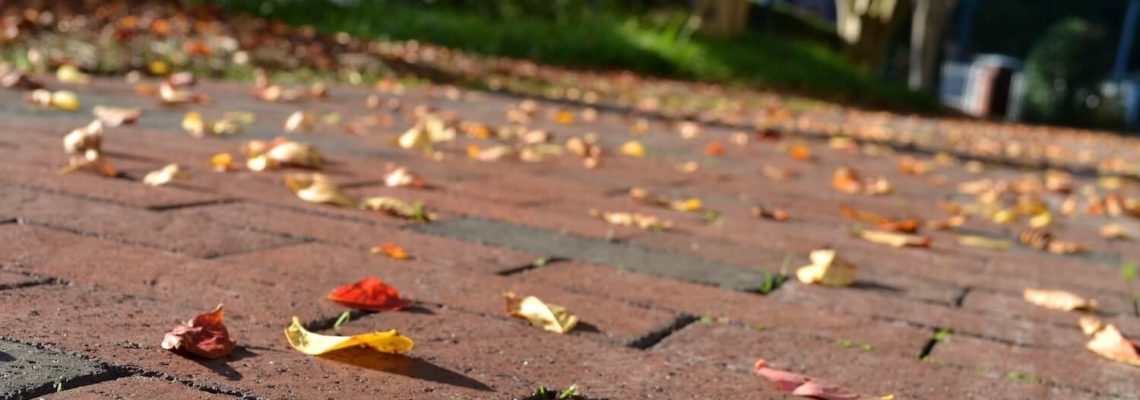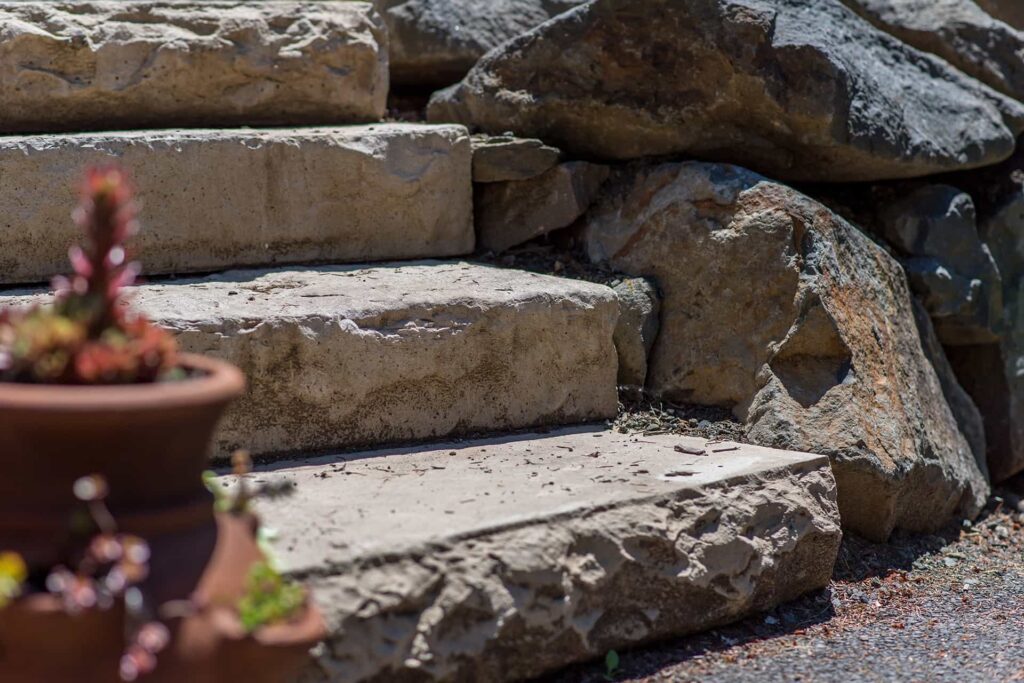Pavers are a beautiful and durable choice for creating inviting outdoor spaces, including patios, driveways, walkways, and more. Their versatility in design, long-lasting strength, and ease of installation have made them a popular choice for homeowners and property managers alike. But even though pavers are designed to withstand the elements and daily wear, they still require proper maintenance to retain their visual appeal and functionality over time. Without regular care, your pavers can start to look worn, faded, and cracked. Proper paver maintenance helps to extend their lifespan and enhances the aesthetic value of your property.
While some basic upkeep tasks, like sweeping and spot-cleaning, can be done by homeowners, there are certain aspects of paver maintenance that are best left to professionals, such as pressure washing and refinishing with polymeric sand. In this article, we’ll explore why pavers need maintenance, the importance of professional care, and how services like pressure washing and polymeric sand application can keep your pavers looking great for years.
Why Pavers Need Maintenance Services
Although pavers are incredibly durable, a variety of factors can cause them to degrade over time, leading to the need for regular maintenance. Let’s explore the main reasons why pavers require care:
1. Weather and Environmental Factors
Pavers are constantly exposed to the elements, which can cause dirt, grime, moss, algae, and even stains to build up on the surface. Whether it’s sun, rain, snow, or humidity, weather conditions take a toll on the appearance of your pavers. In colder climates, freezing and thawing cycles can cause pavers to shift and crack. In hot, dry climates, the sun can cause fading or discoloration. Humidity and moisture contribute to the growth of moss, algae, and weeds, all of which can negatively affect the look and structure of your pavers.
2. Wear and Tear
Whether it’s from foot traffic, vehicle weight, or heavy furniture, pavers can experience wear and tear that results in shifting, cracking, or uneven surfaces. The joints between pavers, often filled with sand or grout, can wear away over time, leaving spaces that allow weeds to grow. If left untreated, these small issues can lead to larger problems and a less attractive and less functional outdoor space.
3. Maintenance of Joints
The joints between pavers are critical to the overall stability of the surface. Over time, the sand or grout that fills these joints can erode due to rainfall, foot traffic, and other environmental factors. When the joint material starts to degrade, pavers become more susceptible to shifting, which can lead to cracks or gaps between them. These gaps can become homes for weeds, causing further disruption to the paver structure.
The Importance of Regular Paver Maintenance
Proper maintenance not only keeps your pavers looking great, but it also offers several benefits that can help you protect your investment in the long run:
1. Prolongs the Lifespan of Your Pavers
Regular maintenance prevents small issues from becoming bigger, more expensive problems. For example, routine cleaning removes dirt and stains before they can set into the pavers, and sealing them ensures that moisture doesn’t penetrate, which could cause cracks or discoloration. By keeping up with your paver maintenance, you can extend their lifespan and avoid the need for costly repairs or replacements.
2. Maintains Curb Appeal
An outdoor space with well-maintained pavers significantly enhances the curb appeal of your property. Whether you’re selling your home or just enjoying it for personal use, a pristine paver surface creates a welcoming environment and leaves a positive impression on visitors, neighbors, or potential buyers.
3. Prevents Larger, Costly Problems
Minor issues such as cracks or shifting pavers may seem insignificant at first, but left untreated, they can escalate into major problems. For example, a few cracked pavers can cause further damage to the surrounding area, leading to costly repairs or even a full replacement of the paver surface. By addressing small issues early with professional care, you can save money and avoid these expensive fixes down the road.
4. Increases Safety
Uneven or cracked pavers can be a safety hazard, especially if they create trip hazards or allow water to pool. Regular maintenance ensures that your pavers remain smooth and level, reducing the risk of accidents and injury.
Professional Pressure Washing: The Key to Cleaning Pavers Effectively
One of the most important steps in maintaining the look and function of pavers is cleaning. Over time, dirt, debris, algae, moss, and stains can accumulate, causing pavers to lose their appeal. While homeowners can perform basic cleaning tasks, professional pressure washing is the most effective and thorough method for restoring the appearance of pavers.
Why Hire a Professional for Pressure Washing?
Professional pressure washing involves using high-powered equipment to remove dirt, grime, algae, and other debris from paver surfaces without damaging the material. Pressure washing offers several benefits over DIY cleaning:
- Thorough Cleaning: Professionals have the knowledge and experience to clean pavers thoroughly, ensuring that all debris is removed from the surface and joints. They know how to adjust the pressure and nozzle settings to clean effectively without causing damage.
- Prevents Damage: If done improperly, pressure washing can cause damage to the surface of the pavers, leading to cracks or chipped edges. Professional contractors know how to handle the equipment safely to avoid this risk.
- Time Efficiency: Pressure washing large areas of pavers can be time-consuming, but professionals have the right tools and expertise to get the job done quickly and efficiently, allowing you to enjoy your outdoor space sooner.
- Access to High-Quality Equipment: Professional pressure washers use commercial-grade equipment that delivers a more effective clean than typical consumer models. This ensures that even deeply embedded dirt or algae is removed completely.
How Pressure Washing Works for Pavers
Professional pressure washing involves the following steps:
- Preparation: The area around the pavers is cleared of furniture, plants, and other items to ensure a clean surface.
- Assessment: The professional will assess the condition of the pavers to determine the appropriate pressure setting and cleaning solution needed.
- Cleaning: Using high-pressure water, the technician cleans the paver surface, removing dirt, stains, and algae. They may also use eco-friendly cleaning solutions to tackle stubborn stains, such as oil or rust.
- Rinsing: After the cleaning process, the pavers are thoroughly rinsed to ensure all dirt and cleaning agents are removed.
- Drying: The paver surface is left to dry completely before any additional maintenance, such as sealing or re-grouting, is performed.
Refinishing with Polymeric Sand: How to Restore and Protect Pavers
Once your pavers are cleaned and dried, refinishing with polymeric sand is an essential next step to restore the joints and provide additional protection. Polymeric sand is specially designed to stabilize pavers, prevent weed growth, and keep the surface intact for years.
What Is Polymeric Sand?
Polymeric sand is a fine sand mixed with polymer additives that bind together when activated by water. The sand is typically used to fill the joints between pavers, creating a solid bond that prevents shifting and movement. When applied correctly, polymeric sand can:
- Prevent Weeds: By filling the joints completely, polymeric sand blocks weed growth, which is a common problem with paver surfaces.
- Prevent Erosion: The polymeric sand binds together, reducing the risk of sand erosion due to rain or foot traffic.
- Enhance Stability: The sand stabilizes the pavers, preventing them from shifting or settling over time.
How to Apply Polymeric Sand
Applying polymeric sand is a multi-step process that is best handled by professionals due to its intricacy and precision. Here’s an overview of how professionals apply polymeric sand to pavers:
- Cleaning and Preparation: After pressure washing, the pavers are thoroughly dried. The joints are cleaned to remove any remaining debris or old sand.
- Application of Polymeric Sand: The sand is spread evenly over the paver surface, ensuring that the joints are completely filled. Professionals use a broom to sweep the sand into the joints and make sure it’s evenly distributed.
- Activation: Once the sand is in place, it’s lightly misted with water to activate the polymer. This process bonds the sand together, creating a solid and durable joint filler.
- Curing: The pavers are left to dry and cure for several hours, ensuring the polymeric sand forms a strong bond and is fully set.
Why Professionals Are Needed for Polymeric Sand Application
While applying polymeric sand may seem like a simple task, there are several reasons why professionals are recommended for this service:
- Proper Sand Application: Professionals ensure that the sand is evenly distributed and fills the joints completely without overfilling or underfilling.
- Optimal Water Activation: The correct amount of water must be applied to activate the polymeric sand. Too much or too little water can cause the sand to either wash away or fail to bond properly.
- Experience with Weather Conditions: The curing process must occur under the right weather conditions—ideally, a dry day with little wind. Professionals know how to time the application and ensure optimal conditions for curing.
DIY vs. Professional Paver Maintenance
While some basic tasks like sweeping and spot-cleaning can be done by homeowners, certain aspects of paver maintenance require the expertise of professionals. Pressure washing and applying polymeric sand are essential for restoring the appearance and functionality of your pavers, and professionals have the tools, experience, and knowledge to get the job done efficiently and effectively.
Conclusion
Pavers are a beautiful addition to any outdoor space, but like any home feature, they require regular maintenance to keep them looking their best. Professional pressure washing and refinishing with polymeric sand are key steps in maintaining the beauty, functionality, and durability of your pavers. By investing in these professional services, you’ll not only extend the lifespan of your pavers but also ensure that your outdoor space remains a stunning and safe environment for years to come.
With the help of experienced contractors, you can enjoy a pristine, well-maintained paver surface without the hassle of doing it all yourself. Whether you’re restoring a weathered driveway or enhancing your backyard patio, taking the time to invest in paver maintenance will reward you with a stunning outdoor space that you can enjoy year-round.


